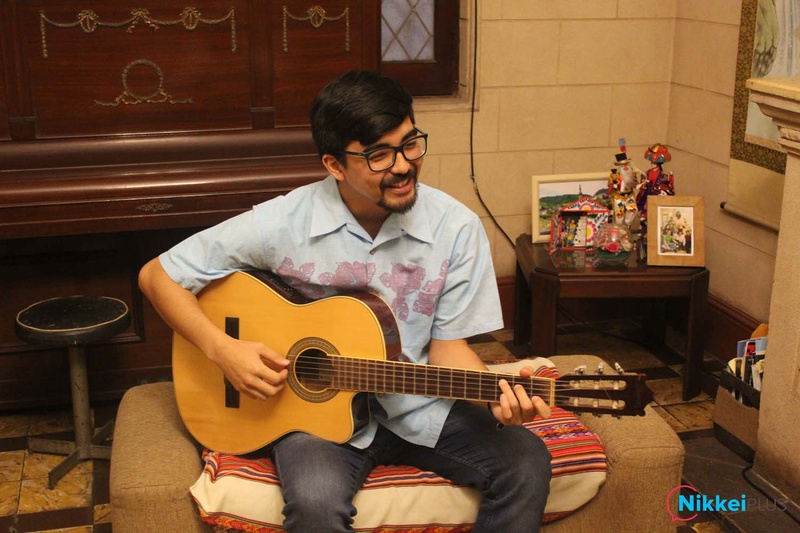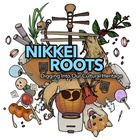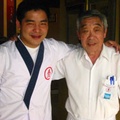“This is a story that goes beyond my own history, it goes back to my ancestors, to my roots, but it is still mine. This is a journey that goes beyond crossing an immense ocean, of feeling an emotion that is willing to never go out again, this is the story of this journey, an encounter with my identity, with the strength that I inherited in my soul and abilities. smiles that break out when saying Uchinanchu Yaibin.”
This is a verse of the song that everyone sang, with one voice, at the Ginozanchu no Tsudoi International Festival, held in Ginoza, Okinawa, in 2016.
Many cried when singing each verse composed by singer-songwriter Kenji Igei. “I was very moved that children from Okinawa sang it. These are things that motivate you to continue writing. “I write what comes to mind, I try to be as transparent as possible,” he says.
That was the beginning for his voice to continue moving the Uchinanchu, those people with whom he identifies thanks to his ancestors, thanks to them who decided to stay in Peru to seek the happiness of those who arrived later. Without a doubt, they left a great vestige in our country, since Kenji's lyrics will continue to be marked in the hearts and memories of the Nikkei.
He is one of those who is inspired at any moment. How many early mornings witnessed his awakening simply to write down (now on his cell phone) a verse of the song that he needs to make known.
“When I returned from Ginoza's scholarship in 2015, I told my mother that I felt most identified with Okinawa, but she told me that I was born in Peru, that I should not forget my roots and that it helped me set foot on land (laughs )”, he tells us with a smile that hides under his well-known beard that seems to have become his personal trademark.
In these years that have helped him get to know the idiosyncrasies of the Peruvian and the Okinawan, he has found a great similarity. “The Peruvian is very similar to the Okinawan because both are festive, they have a very strong artistic richness,” he points out.
And so every time he plays his guitar and sings his own songs, he makes us travel to those landscapes of the places that Kenji visited in Japan. But perhaps his talent for music would not have become known if it had not accompanied him along with his career as a communicator. Although his passion is music and it is what he wants to dedicate himself to forever, his career helps him a lot. “Art is communicating and music is a very beautiful tool to connect with people,” he highlights.
Music and religion
Religion always has an important place in Kenji's life, as he belongs to a “space of brotherhood” that is Equación Sin Finy, which was even present singing at the coming of Pope Francis to Lima in January of this year.
“Religion and music go hand in hand. “I met God through music, it is a very strong tool to unite people with God,” he points out. It should be noted that he was in a convent but decided to leave it, but that is another story that he still does not want to tell, it will be for the next interview or, who knows, we will meet her in a song he composes at some other time.
Kenji Igei's compositions
- Sheets of hope (song from the Niseta Tour - Meeting of Young Okinawans in South America)
- Uchinanchu yaibin (Hymn of the Ginozanchu no Tsudoi International Festival, in Ginoza-2016)
- Our Dear Uchina (Hymn of the VI World Meeting of Okinawan Youth, held in Peru-2018)
- Always uchinanchu (inspired by World Uchinanchu Day)
- Nuchidu takara (song about peace)
© 2018 Roger Jesús Gonzales Araki





